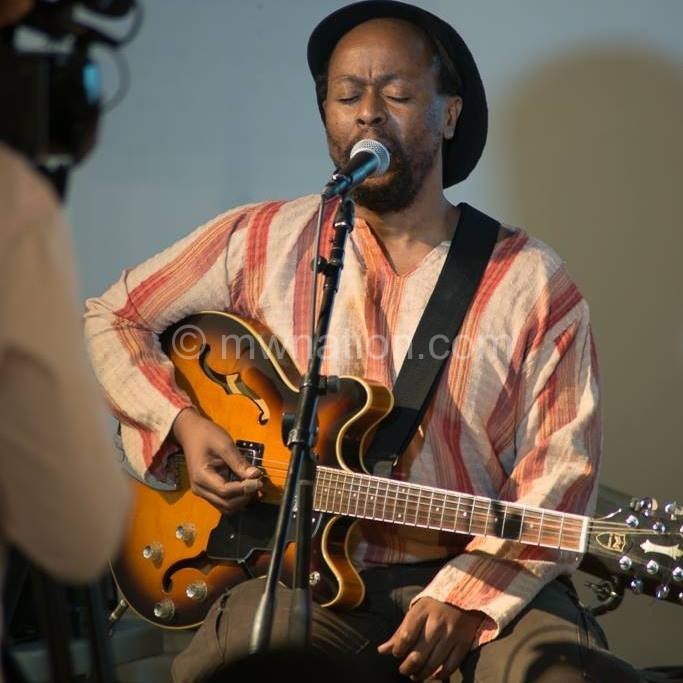Voyage to ancestors
Tamukwera Ilala! Ilala! Ilala! Iseee! Tamukwera Ilala eeeh! Ilala! Amama! IIala! Amama! Ilala ise, tamukwera IIala eee!
Such is the fast-paced song in rural areas, especially in the North, when the MV Ilala, a 620-tonne ferry, is about to depart a port—a sign of just how much the ship, which has chugged up and down Lake Malawi since 1951, is revered.

Ilala is a song that comes from an old Malawian traditional wedding song. It says we are going on a ship.
On Sunday, May 19 2019, United States-based Malawian musician Masauko Chipembere Jnr released an acoustic version of the song as a precursor to his album set for release on June 16 2019.
In his version, Masauko, son to political nationalists Henry Masauko and Catherine Chipembere, believes that the ship is taking people on a voyage to the place of the ancestors.
It is a powerful acoustic performance filmed at Stowel Lake Farm on Salt Spring Island, Canada. The album version of Ilala was produced and recorded by Come to Life at Milestone Recording Studio in Cape Town, South Africa.
But this song is just a tip of an iceberg in a music project that captures the story of how a boy from Los Angeles, who spent years trying to find his African identity, finally made it home.
“I was a child of exile,” speaks Chipembere in a five-minute documentary released recently.
“I was conceived in Tanzania while my mother and father were running from the conflict with Kamuzu Banda in Malawi. I was born in Los Angeles. I was actually in the womb in Africa and then born in the United States.
“My music, I feel, has always been about trying to figure out how to balance that on some sort of scale,” he explains.
His father, Henry, played a significant role in bringing independence from colonial rule to Malawi. He became a minister in Kamuzu Banda’s Cabinet in the run up to independence in July 1964.
But barely a month later, Banda’s autocratic style led to the Cabinet Crisis where Chipembere resigned and was forced into exile.
“In Los Angeles, I grew up amongst kids who were troubling with all things that LA had to throw at you…Malawi was an abstract idea. I came to find out later that, because of my father’s political situation, it was illegal for Malawians to come to Los Angeles. Malawians could be punished by death for coming to Los Angeles because my father was there. So, as a child, I grew up not knowing any Malawian.
“It was up until 1994, when my mother went back to Malawi. She was part of the government that pushed out the dictatorial regime of Kamuzu Banda.
“That’s when Malawi and the whole Chipembere story became real to me, more especially the thought of my mother taking a flight to Malawi to fight someone who is an enemy of pan-Africanism,” he explains.
This short music documentary about Masauko Chipembere was made over a two-week journey in Southern Africa to produce his latest record with Come To Life titled Masauko.
For years, he had been traveling to Malawi to work with artists such as Ernest Ikwanga (lead guitar), Chambota Chirwa (bass guitar), Kyle Luciano Phikiso (drummer) and Sam Mkandawire (keyboard).
He, however, says despite the immense talent that Malawi has, he found it difficult to find better resources for his album; hence, going to South Africa which “has more means such as better equipment and studios”.
The album’s creation finds its roots back during the US Presidential elections of November 2016 when Masauko was invited to a jam session on Salt Spring Island, Canada.
A number of artists had also gathered on Salt Spring to deal with the coming of the new regime in the U.S. and to remind themselves that they could battle the destructive nature of the new political reality with creativity through art.
They sang, they chanted, they cried, and testified. At the end of a particularly beautiful jam session, Masauko was standing with David from Guayaki and Daryl Chonka, who was the sound engineer for the event.
He recalls: “David said to me ‘We should start a record company’. I simply agreed, suggesting that the moralistic nature that has characterised the Guayaki brand could make a positive impact on the music industry. I never dreamed that Daryl would call me a few months later to say, “We are starting the record company we talked about and you are the first artist we want to make a record with.”
Chipembere says although Malawi is financially poor, it is culturally rich; a feature that he believes his project demonstrates.
Malawians are a people who have ancient traditions connecting them to the earth, the sky, the wind, the trees and the ancestors.
His album is the product of all these elements coming together.
“African-American community in the United States taught me about ancestors. In fact, I learnt and heard more about ancestors from black people in America than I have typically in Africa.
“The belief there is that we need to come to grips with our ancestors.
But we are a people claiming that our ancestors were slaves. That means going back into that is choosing hardships.
“My journey was to come to grips with my roots in Malawi and Africa.
That journey, I understand, didn’t have to be pretty. It had to be done because it was the right thing to do, because people without roots cannot grow.
“So, going straight at it instead of avoiding it has allowed me to find some grace in the sense that I get to know myself,” he explains.





